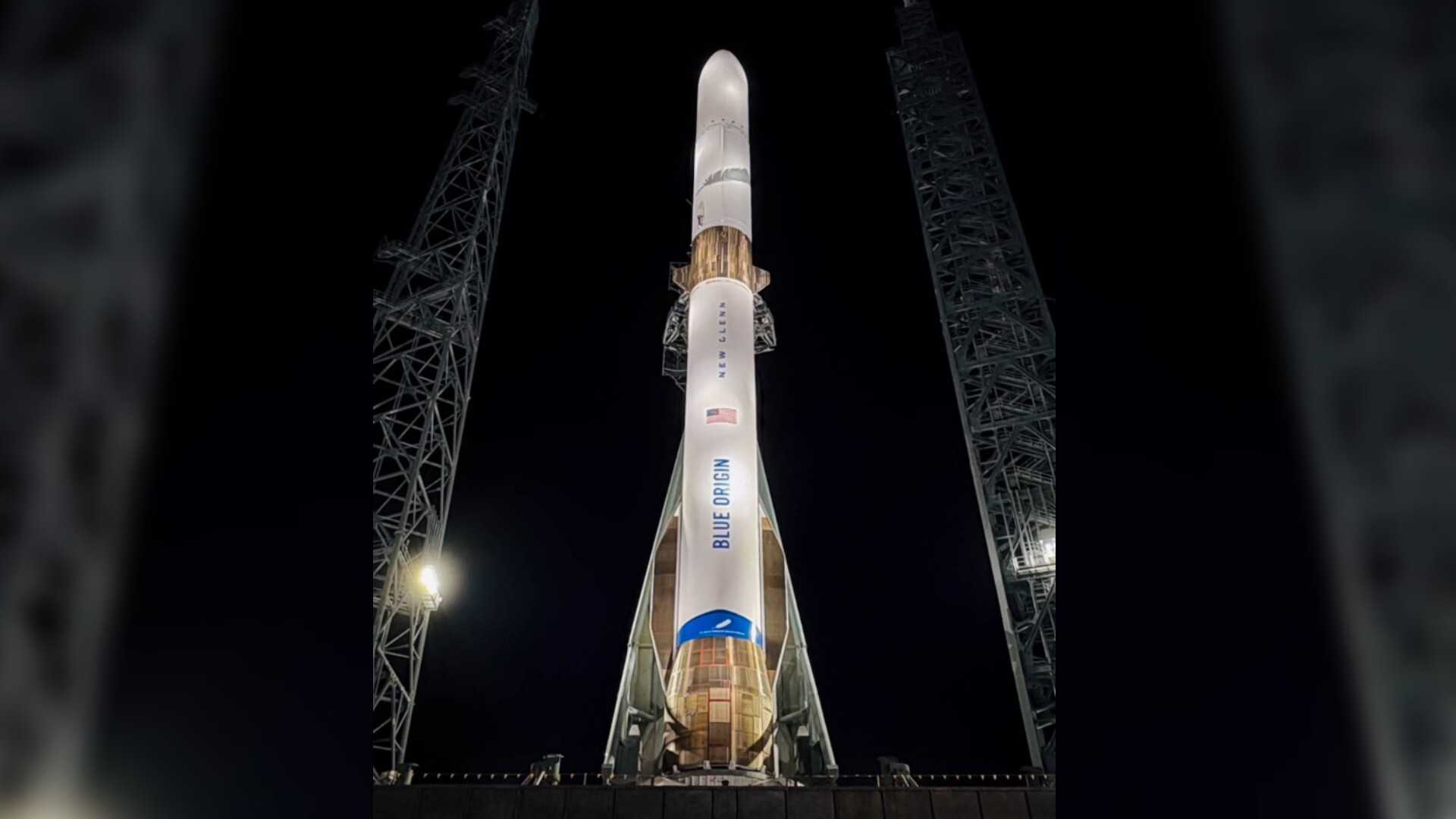Tech
Blue Origin Delays New Glenn Rocket Launch Again Due to Technical Issues

CAPE CANAVERAL, Fla. — Blue Origin has postponed the inaugural launch of its New Glenn rocket for the third time, citing technical issues and unfavorable weather conditions. The 30-story rocket, designed to carry satellites into orbit, was initially scheduled to launch Monday, January 13, but has now been rescheduled for no earlier than Thursday, January 16.
The company announced the delay late Monday evening, just hours after suggesting a second launch attempt could occur early Tuesday. “We’re moving our NG-1 launch to no earlier than Thursday, January 16,” Blue Origin stated in a social media post. The three-hour launch window will open at 1 a.m. EST (0600 UTC).
Monday’s launch attempt was scrubbed due to ice forming in a purge line on an auxiliary power unit, which powers some of the rocket’s hydraulic systems. “This morning’s scrub was due to ice forming in a purge line on an auxiliary power unit that powers some of our hydraulic systems,” the company explained. A purge line is a pipe or tube used to remove unwanted gases or debris from rocket systems.
Earlier in the day, Blue Origin had hinted at potential delays due to poor weather conditions at Launch Complex 36 (LC-36) in Cape Canaveral. “Tonight’s poor weather forecast at LC-36 could result in missing this window,” the company said in a statement.
The New Glenn rocket represents a significant milestone for Blue Origin, as it marks the company’s first foray into orbital launches. The NG-1 mission is also the first certification flight under the National Security Space Launch program. The payload includes a prototype for the Defense Innovation Unit’s Orbital Logistics effort, designed to test Blue Ring’s core flight, ground systems, and operational capabilities.
“This is our first flight, and we’ve prepared rigorously for it,” said Jarrett Jones, senior vice president of New Glenn at Blue Origin. “But no amount of ground testing or mission simulations are a replacement for flying this rocket. It’s time to fly. No matter what happens, we’ll learn, refine, and apply that knowledge to our next launch.”
Blue Origin’s launch delays come amid a busy week for spaceflight. SpaceX is preparing to launch a Falcon 9 rocket carrying two lunar landers from NASA’s Kennedy Space Center as early as Wednesday, January 15. SpaceX is also scheduled to conduct the seventh test flight of its Starship rocket later in the week.
The New Glenn rocket, named after astronaut John Glenn, is a key part of Blue Origin’s strategy to compete in the global launch market. Standing at over 320 feet tall, the reusable rocket is designed to carry payloads of up to 45 metric tons to low Earth orbit. A successful launch would position Blue Origin as a formidable competitor to SpaceX, which has dominated the commercial space industry for years.
As the company works to resolve the technical issues, space enthusiasts and industry stakeholders will be watching closely. The New Glenn’s inaugural flight is not only a test of Blue Origin’s engineering prowess but also a critical step in the company’s broader ambitions to expand its presence in the space industry.












